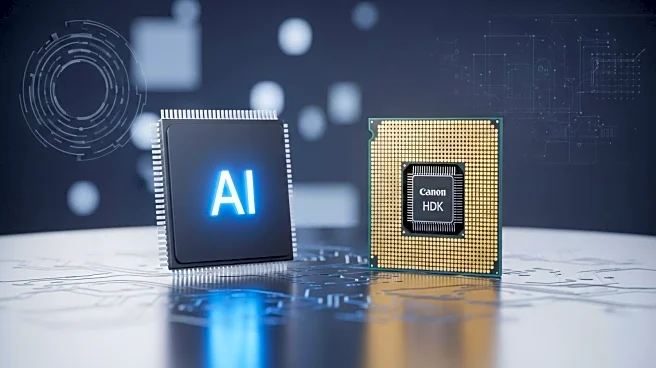What's Happening?
Nvidia, a leading chipmaker, has announced a $5 billion investment in Intel, marking a significant collaboration between the two companies. This partnership aims to enhance the development of custom data centers and personal computer products, which are crucial for artificial intelligence infrastructure. Nvidia will acquire Intel common stock at $23.28 per share, pending regulatory approval. This move follows the U.S. government's recent acquisition of a 10% stake in Intel, aimed at strengthening U.S. technology and manufacturing capabilities. The collaboration will integrate Nvidia's AI and computing stack with Intel's CPUs, potentially revitalizing Intel's position in the tech industry. Intel's shares surged by 25% following the announcement, while Nvidia's shares increased by 2%. The partnership is expected to leverage Intel's chip manufacturing capabilities for Nvidia's AI infrastructure platforms and integrate Nvidia technology into Intel's PC products.
Why It's Important?
This partnership is a pivotal moment for Intel, which has struggled in recent years due to missing the shift to mobile computing and the rise of AI technology. The collaboration with Nvidia positions Intel to re-enter the AI market, potentially reversing its financial downturn. For Nvidia, the partnership offers an opportunity to expand its ecosystem and solidify its leadership in AI technology. The deal is also significant in the context of global semiconductor competition, particularly with China's efforts to reduce reliance on U.S. technology. The U.S. government's investment in Intel underscores the strategic importance of maintaining a robust domestic semiconductor industry. This collaboration could have far-reaching implications for the U.S. tech sector, potentially influencing market dynamics and competitive strategies.
What's Next?
The partnership between Nvidia and Intel is expected to lead to the development of new chip technologies, although a specific manufacturing agreement has not yet been finalized. This collaboration could challenge existing semiconductor manufacturers, such as Taiwan Semiconductor Manufacturing Company, by potentially shifting some of Nvidia's chip production to Intel's foundries. The deal may also prompt reactions from other tech companies and governments, particularly in light of recent restrictions by China on purchasing Nvidia chips. As the partnership progresses, stakeholders will be closely monitoring its impact on the semiconductor industry and the broader tech market.










